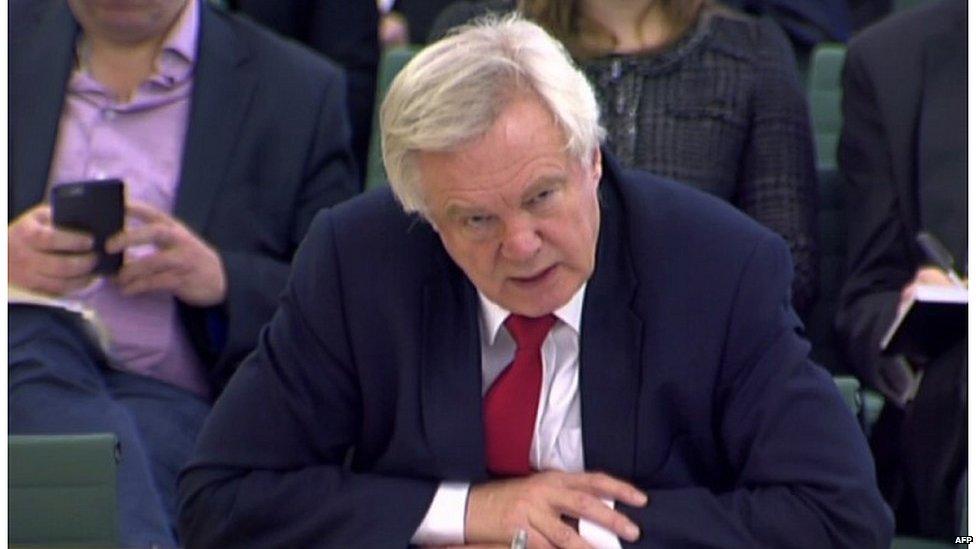Post-Brexit migration in 'national interest'
- Published

David Davis has moved to reassure British firms and universities their interests will not be needlessly harmed by migration controls after the UK leaves the European Union.
Facing questions for the first time from the cross-party Brexit select committee, Mr Davis emphasised it was his job to return control of immigration policy to British ministers.
The Brexit secretary told MPs that immigration control would then be decided by the home secretary but, he added, policy "would be in the national interest" and would affect "all levels of skill" based on "a judgement as what is necessary for universities, business and fruit picking".
His remarks may reassure some in business who fear access to the UK after Brexit may be limited to high-value, highly-skilled talent from overseas.
The aim of reducing net migration into the UK to the tens of thousands was "still there," he insisted.
"My own view of this... is that it will be exercised in the national interest which does not mean suddenly denying universities' Nobel Laureates coming there, or denying businesses the ability to transfer managers from Tokyo or Berlin or wherever and it doesn't involve shutting down all the fruit picking farms in the country either".
He made clear the government's opening ambitions for the "Article 50" negotiations on leaving the EU had yet to be worked out and the promised outline of the UK's negotiating plan would not be published before February.
Officials were still working through the needs of 57 separate sectors, he explained.
He refused, though, to discuss how much detail would be released. "I want to be as open as we can, but we must be careful we are not undermining our own position".
Mr Davis indicated he might be prepared to give confidential briefings to MPs on the committee, in private session, on the progress of negotiations once underway.